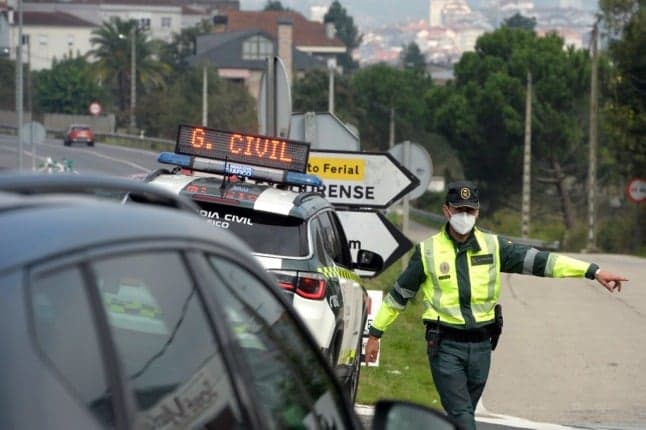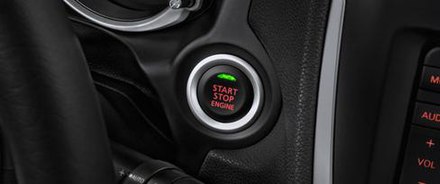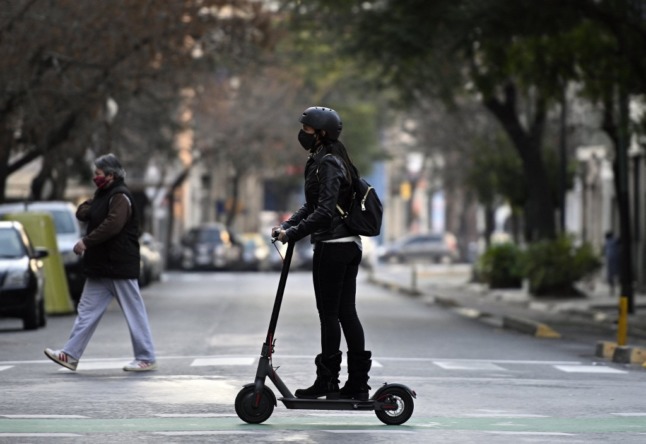Driving in Spain: The five new fines traffic authorities want to roll out in September

Spain’s DGT traffic authority is putting the finishing touches to a set of new fines for drivers in the country which could be approved in September 2021.
Spain’s General Directorate of Traffic (DGT) is looking for approval from the Spanish parliament to introduce five new fines as well as other amendments to the country's traffic code.
One of the main purposes of these changes is to find ways to reduce the environmental impact of the 29.4 million vehicles in circulation in the country.
Article 2 of Spain’s traffic code would therefore include as punishable offences actions considered of "unnecessary damage or inconvenience to the environment", whereas the previous wording only addressed negligence towards humans and property.
One of the new penalties that could come into force relates to this reinforced protection for the environment, although as we will see now, all other new fines (multas in Spanish) are focused primarily on improving road safety.
Not switching off the engine when the vehicle is stationary or parked
The DGT wants to prevent unnecessary emissions by requiring drivers to switch off their engine while the vehicle isn’t moving.
After parking or temporarily stopping, drivers will have a maximum of two minutes in which they can keep their engines running if they want to avoid a €100 fine.
This would apply even if the drivers and passengers remained inside the vehicle.
The DGT hasn’t clarified yet if this new rule would apply when vehicles are stuck in traffic.

Holding a mobile phone even if you’re not using it
Spanish traffic authorities keep looking for ways to dissuade drivers from getting distracted by their mobile phones.
Last May, they announced their intention to start fining drivers who have their phones close to them even if they’re not technically using them.
The DGT now wants to widen the criteria of punishable mobile-related offences to include holding a mobile phone while driving, even if it’s not being looked at or used.
The proposed penalty is the loss of 3 to 6 points off drivers’ licences, as well as €100 fine.
This summer, drivers in Spain were warned by the DGT that using mobile devices (including GPSs and headphones) while driving is already considered a punishable offence which leads to a €200 fine and the loss of 3 points off one’s driving licence.
 Photo: StockSnap/Pixabay
Photo: StockSnap/Pixabay
Surpassing speed limit when overtaking on secondary roads
This has been the plan by Spain’s DGT since it toughened penalties and speed limits in late 2020.
Now it seems increasingly likely that from September, vehicles in Spain won't be able to surpass the speed limit at all when overtaking on secondary roads, whereas currently it is still allowed by up to 20km/h when safe to do so.
Although the fines have not yet been mentioned, penalties for speeding on carreteras convencionales currently range from €100 for surpassing the limit by between 21 and 40km/h to €600 and the loss of 6 points for surpassing the speed by 71km/h.
Carreteras convencionales, high-capacity single-carriageway roads which are a step down from motorways (with lanes in both directions, with or without separating barriers) are where 77 percent of fatal road accidents take place in Spain, according to DGT data. They often run parallel to the motorways and connect different urban areas.
 Photo: Juanecd/Flickr
Photo: Juanecd/Flickr
Back in May, DGT head Pere Navarro suggested that there will also be a speed limit drop on carreteras convencionales, the country’s secondary roads, where the current speed is 90km/h in most cases.
“It should be 70km/h on these roads, that would be the ideal speed,” Navarro said at the time, although there is no evidence this will be included in this latest proposal of new fines and changes to Spain’s traffic code.
Having a speed camera detector in your vehicle
It is already illegal to use a speed camera detector in your car in Spain, with fines of €6,000 and the loss of 6 driving licence points for those caught red handed.
What the DGT is now proposing is that simply having one of these devices installed in your vehicle should be enough to be handed a fine, even if police don’t catch offenders in the act.
The proposed penalty is the loss of 3 points of one’s licence and a €500 fine.
Not wearing a helmet while riding an e-scooter
The proliferation of electric scooters and similar micro-mobility devices across Spain keeps forcing the DGT to keep adjusting its legislation for this new and still relatively unregulated means of transport to be accounted for.
 Photo: Juan MABROMATA/AFP
Photo: Juan MABROMATA/AFP
Since January 2021, e-scooter users have been banned from riding on the pavement, have a maximum speed limit of 25km/h and require a driving certificate, not that the evidence suggests that these measures are being policed properly across Spain.
Now the DGT wants to make it compulsory for these e-riders to wear a helmet or face a penalty of €200.
Comments (1)
See Also
Spain’s General Directorate of Traffic (DGT) is looking for approval from the Spanish parliament to introduce five new fines as well as other amendments to the country's traffic code.
One of the main purposes of these changes is to find ways to reduce the environmental impact of the 29.4 million vehicles in circulation in the country.
Article 2 of Spain’s traffic code would therefore include as punishable offences actions considered of "unnecessary damage or inconvenience to the environment", whereas the previous wording only addressed negligence towards humans and property.
One of the new penalties that could come into force relates to this reinforced protection for the environment, although as we will see now, all other new fines (multas in Spanish) are focused primarily on improving road safety.
Not switching off the engine when the vehicle is stationary or parked
The DGT wants to prevent unnecessary emissions by requiring drivers to switch off their engine while the vehicle isn’t moving.
After parking or temporarily stopping, drivers will have a maximum of two minutes in which they can keep their engines running if they want to avoid a €100 fine.
This would apply even if the drivers and passengers remained inside the vehicle.
The DGT hasn’t clarified yet if this new rule would apply when vehicles are stuck in traffic.

Holding a mobile phone even if you’re not using it
Spanish traffic authorities keep looking for ways to dissuade drivers from getting distracted by their mobile phones.
Last May, they announced their intention to start fining drivers who have their phones close to them even if they’re not technically using them.
The DGT now wants to widen the criteria of punishable mobile-related offences to include holding a mobile phone while driving, even if it’s not being looked at or used.
The proposed penalty is the loss of 3 to 6 points off drivers’ licences, as well as €100 fine.
This summer, drivers in Spain were warned by the DGT that using mobile devices (including GPSs and headphones) while driving is already considered a punishable offence which leads to a €200 fine and the loss of 3 points off one’s driving licence.
 Photo: StockSnap/Pixabay
Photo: StockSnap/Pixabay
Surpassing speed limit when overtaking on secondary roads
This has been the plan by Spain’s DGT since it toughened penalties and speed limits in late 2020.
Now it seems increasingly likely that from September, vehicles in Spain won't be able to surpass the speed limit at all when overtaking on secondary roads, whereas currently it is still allowed by up to 20km/h when safe to do so.
Although the fines have not yet been mentioned, penalties for speeding on carreteras convencionales currently range from €100 for surpassing the limit by between 21 and 40km/h to €600 and the loss of 6 points for surpassing the speed by 71km/h.
Carreteras convencionales, high-capacity single-carriageway roads which are a step down from motorways (with lanes in both directions, with or without separating barriers) are where 77 percent of fatal road accidents take place in Spain, according to DGT data. They often run parallel to the motorways and connect different urban areas.
 Photo: Juanecd/Flickr
Photo: Juanecd/Flickr
Back in May, DGT head Pere Navarro suggested that there will also be a speed limit drop on carreteras convencionales, the country’s secondary roads, where the current speed is 90km/h in most cases.
“It should be 70km/h on these roads, that would be the ideal speed,” Navarro said at the time, although there is no evidence this will be included in this latest proposal of new fines and changes to Spain’s traffic code.
Having a speed camera detector in your vehicle
It is already illegal to use a speed camera detector in your car in Spain, with fines of €6,000 and the loss of 6 driving licence points for those caught red handed.
What the DGT is now proposing is that simply having one of these devices installed in your vehicle should be enough to be handed a fine, even if police don’t catch offenders in the act.
The proposed penalty is the loss of 3 points of one’s licence and a €500 fine.
Not wearing a helmet while riding an e-scooter
The proliferation of electric scooters and similar micro-mobility devices across Spain keeps forcing the DGT to keep adjusting its legislation for this new and still relatively unregulated means of transport to be accounted for.
 Photo: Juan MABROMATA/AFP
Photo: Juan MABROMATA/AFP
Since January 2021, e-scooter users have been banned from riding on the pavement, have a maximum speed limit of 25km/h and require a driving certificate, not that the evidence suggests that these measures are being policed properly across Spain.
Now the DGT wants to make it compulsory for these e-riders to wear a helmet or face a penalty of €200.
Join the conversation in our comments section below. Share your own views and experience and if you have a question or suggestion for our journalists then email us at [email protected].
Please keep comments civil, constructive and on topic – and make sure to read our terms of use before getting involved.
Please log in here to leave a comment.